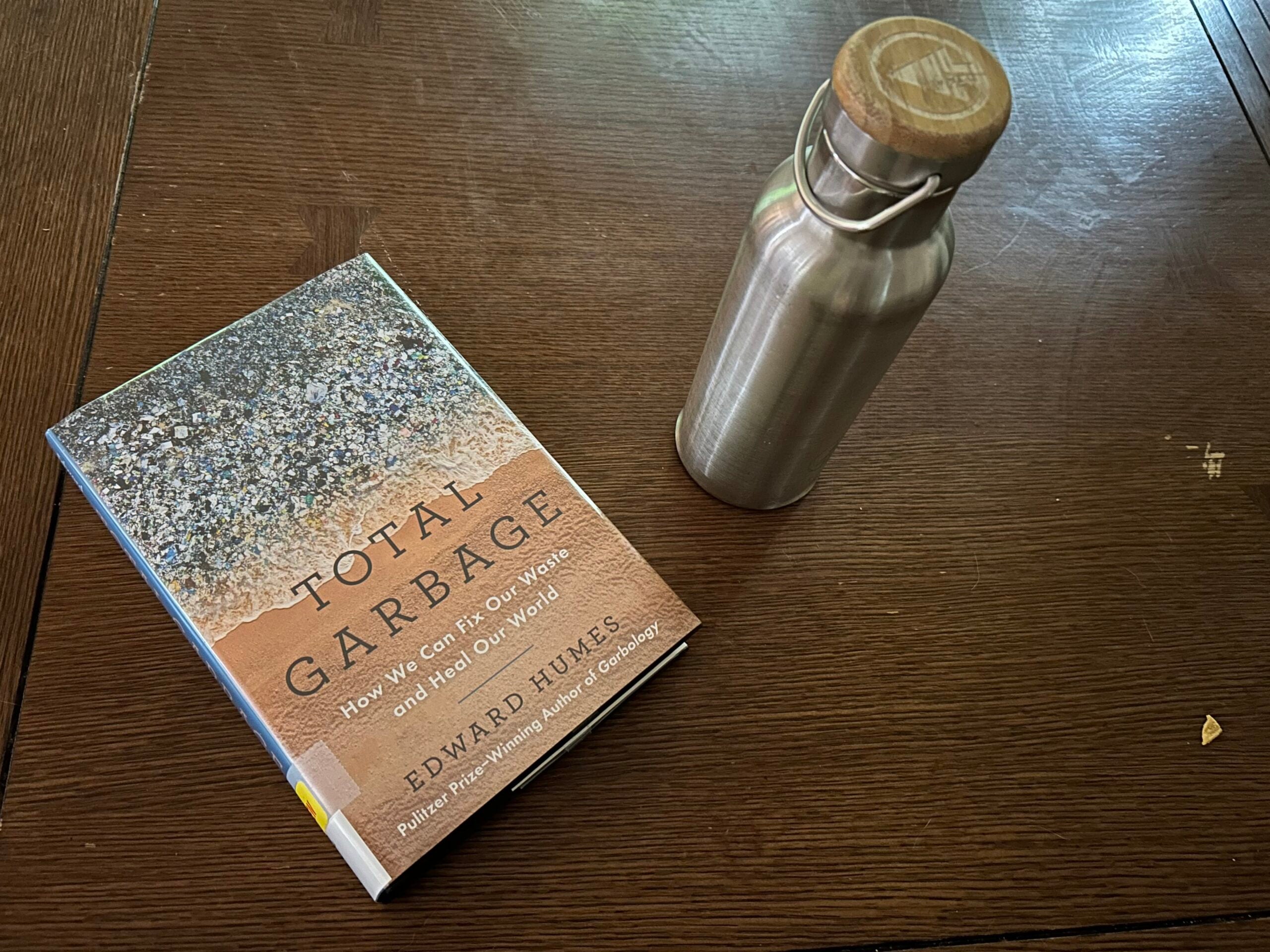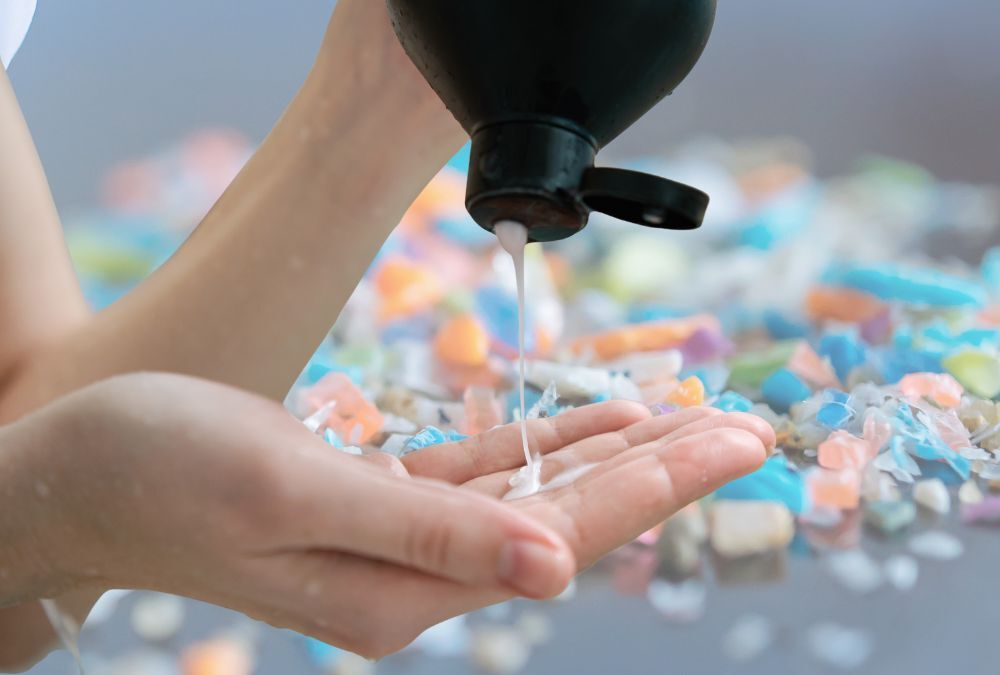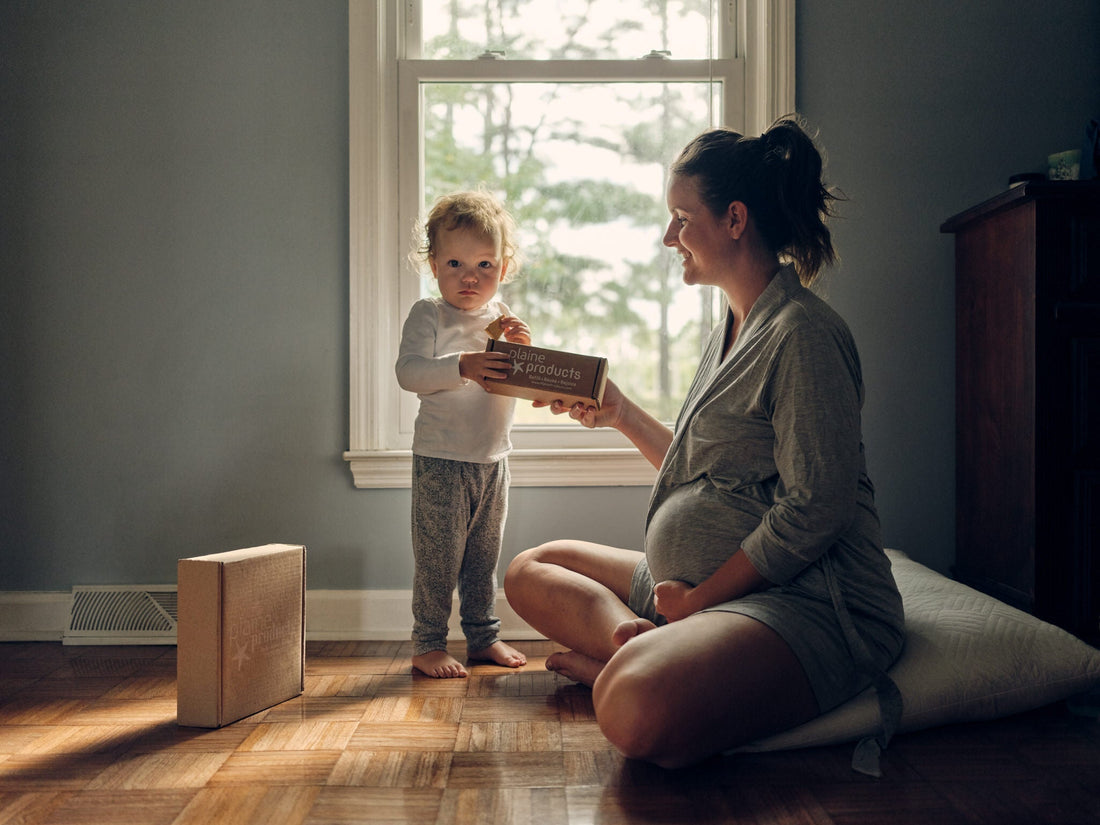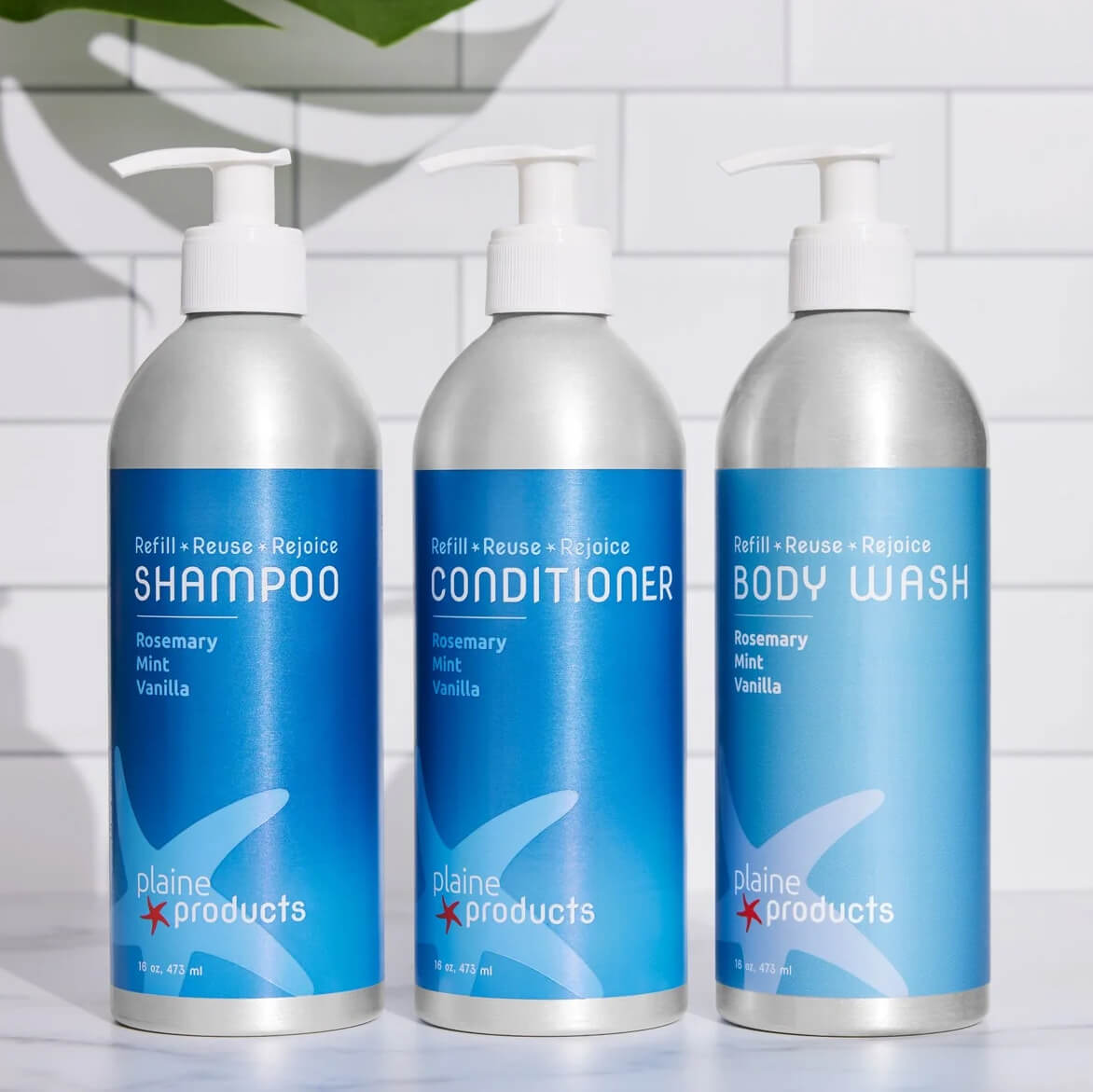Hi, it's Lindsey McCoy, Co-Founder & CEO of Plaine Products. I recently read Total Garbage: How We Can Fix Our Waste and Heal Our World , by Edward Humes and there were so many great ideas, suggestions, and revelations I had to share a few.
Humes starts by reminding us we've swallowed around 285 pieces of plastic today. We do so every day. Plastic is in the water we drink, the food we eat, and the air we breathe. But he quickly moves on from plastic alone and talks about waste in general, which is why I enjoyed it. His premise is that waste, itself, is the enemy. Combatting waste is an untapped opportunity to improve our health, economics, and the environment. And, since waste is driven by habit and choice, not necessity, it's a problem we can solve. The book covers five areas to explain how we can fix our waste: how we heat, cool, cook, how we power our places, how we get around, the stuff we buy, and what we eat and drink.
I'll share a few highlights from each section, but the book is well worth the read! In addition to ideas, it shares the entertaining and inspiring origin stories of a few Plaine Products partners including GoGo Refill in Maine and Ridwell in the Pacific Northwest.
How We Heat, Cool & Cook
The Inflation Reduction Act of 2022 provides for tax rebates on a variety of home appliances, including heat pumps and electric and induction stoves. I've never been a fan of electric stoves, but the new induction ones get rave reviews from chefs in the book. Switching away from a gas stove, both for health and environmental reasons, is now a purchase we're looking into making!
How We Power Our Places
Solar panels are also available for rebates under the Inflation Reduction Act, and many utilities are supporting consumer solar as a way to drop their own carbon footprint. Hop online and check out the options in your area.
Some ideas are counterintuitive to me, but science supports them. I recently learned that the most effective thing we can do to affect the carbon footprint of laundry is to set the washing machine to cold instead of hot. And, if you have a modern dishwasher, it's more efficient to use it full than it is to hand wash your dishes.
How We Get Around
For short trips consider biking, e-biking, or walking. It's not only good for the planet it's so important for our bodies to move. We spend so much time sitting each day, finding places to shop or eat that we can get to without driving is a win on many levels.
More and more communities are allowing electric golf carts. Golf Carts are a great way to move away from fossil-fuel cars if walking and biking aren't an option.
The Stuff We Buy
 Gabby Buckley, founder of Fill More, Waste Less in Cincinnati, Ohio.
Gabby Buckley, founder of Fill More, Waste Less in Cincinnati, Ohio.
Check out local low-waste store options for new ways to consume. They have products that support reuse, refill, plastic swaps, and low-toxin living. There is a list of stores that carry Plaine Products on our site and a longer list of options on the Refinery Collective Directory.
Join local secondhand and borrowing groups. There are lots of local Buy Nothing groups on FaceBook, as well as second-hand options for sale on Facebook Marketplace, one of the pros of social media. Websites like Craig's List also have second-hand items. Most cities also have thrifting and second-hand shops as options.
Avoid plastic containers where possible, paper and metal are more sustainable packaging options.
What We Eat & Drink
Making a meal plan is always a goal in my life, but I never thought about it as a way to reduce food waste. If you know what you're cooking over the week you won't buy more than you need. It's just important to be realistic about meals you have time to prepare at home each week.
Consider switching over some portion of your lawn to growing food or native plants. It saves money, helps local animals and insects, and can be a good reason to get outside and move during the week.
Knowing We Can Fix Our Waste Gives Me Hope
In addition to these tips, Humes gives us 8 new R's to reframe our thinking: Rethink, Repower, Refuse, Reduce, Reuse, Repair, Recycle, Rot. All of these are powerful steps towards helping us understand how we can fix our waste. The world doesn't have to function as a trash dump. It's within our power to create a better future through the choices and purchases we make, and the businesses and groups we support.





